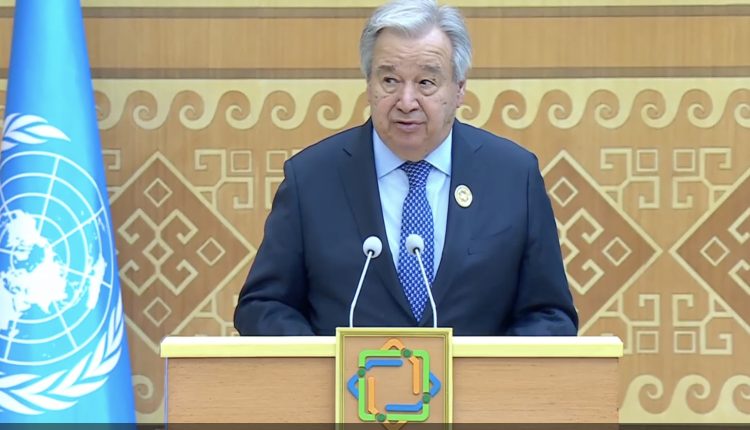UN chief calls for reform of trade system to better serve LLDCs’ realities
Addis Ababa, August 5, 2025 (FMC) – United Nations Secretary-General António Guterres has called for urgent reform of the global trade system to better reflect the realities, challenges, and ambitions of Landlocked Developing Countries (LLDCs), stressing the need to end their persistent marginalization.
Speaking at the Third UN Conference on Landlocked Developing Countries (LLDC3) in Turkmenistan, Guterres highlighted the severe barriers LLDCs face due to their geography, including high transport costs, limited access to global markets, and vulnerability to economic shocks.
“Geography should never define destiny,” Guterres declared. Yet, he noted, LLDCs continue to suffer from an unfair global economic and financial architecture that entrenches inequality and neglects their unique development challenges.
Representing 7 percent of the global population but only about 1 percent of the world economy and trade, LLDCs remain marginalized in the current system. The Secretary-General underscored the need for systemic change: “We must reform the global trade system to better reflect your realities, challenges and ambitions.”
Guterres outlined four key priorities for advancing LLDC development in the decade ahead. He stressed the need to accelerate structural transformation and economic diversification by investing in value-added industries, innovation, and digital transformation to unlock economic potential. Addressing the digital divide, particularly for women and rural communities, was highlighted as critical.
He also emphasized strengthening trade, transit, and regional connectivity. Beyond improving infrastructure and legal frameworks, he said it was important to integrate LLDCs into regional and global value chains to shift from raw commodity exporters to producers of higher-value goods.
On climate action, Guterres noted that although LLDCs contribute less than 3 percent of global greenhouse gas emissions, they face disproportionate climate impacts. He called for doubling adaptation finance and building resilient infrastructure to withstand climate shocks.
Finally, he highlighted supporting green transitions for sustainable development. With adequate financing and technology, LLDCs could leapfrog to renewable energy and sustainable industries, creating jobs while protecting the planet.
The conference aims to adopt the Awaza Programme of Action, a roadmap designed to unlock the development potential of LLDCs and address their specific challenges.
Guterres concluded by reaffirming the United Nations’ commitment to stand with LLDCs in overcoming systemic barriers, enabling these countries to achieve sustainable and inclusive growth.

